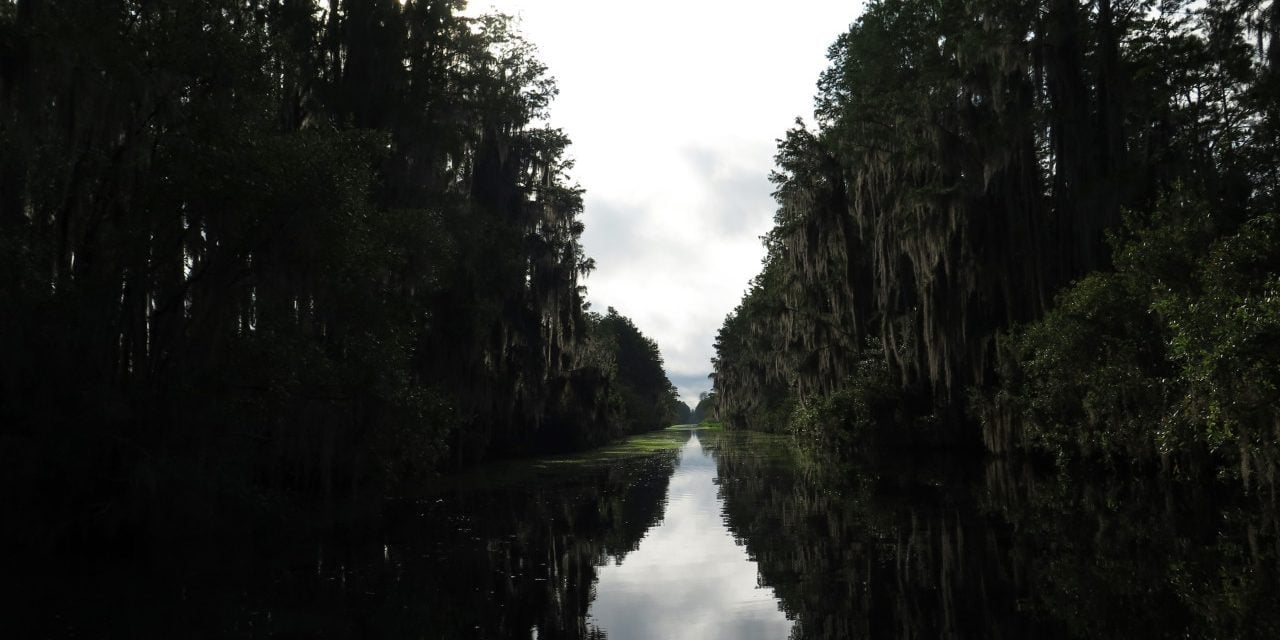This coverage is made possible through a partnership with WABE and Grist, a nonprofit, independent media organization dedicated to telling stories of climate solutions and a just future.
Georgia lawmakers are trying to ban mining near the Okefenokee National Wildlife Refuge — as state regulators consider a permit for one such mining project.
A bill, introduced on a newly-proclaimed Okefenokee Day, would prohibit the state Environmental Protection Division from issuing new mining permits for the geologic feature known as Trail Ridge, which sits to the east of the Okefenokee Swamp in Southeast Georgia.
Alabama company Twin Pines has applied for a permit to mine for heavy minerals in that area, a plan that has drawn fierce and vocal opposition since it was first proposed in 2019.
The bill, which has bipartisan sponsors, declares the Okefenokee “a vital part of Georgia.” It echoes concerns from scientists that the project would disrupt Trail Ridge, and that that in turn could harm the swamp.
“To have such strong bipartisan support behind House Bill 1289 is a real testament to how much Georgians value the Okefenokee Swamp and want to take action to protect it forever,” said Alice Keyes of the environmental group One Hundred Miles.
In a statement, Twin Pines President Steve Ingle declined to “speculate on what may or may not happen in the legislature.”
“We are proceeding with our plans and will abide by the environmental regulations that are actually on the books and applicable to our project as we have done from day one,” Ingle wrote.
The legislation specifies that the director of EPD “shall not issue, modify or renew any permit” or permit amendment submitted after July 1, 2022. The Twin Pines permit application is already before the EPD, but if the law were passed it would block amendments or new permits for mining on Trail Ridge between the St. Mary’s and Satilla rivers.
This addresses one chief concern for opponents of the mine. The initial application is for a smaller demonstration mine, but opponents worry it would pave the way for a larger, more disruptive mine in the future.
EPD has said any additional mining operations outside the demonstration area would require a new permitting process; if passed, the new bill would block those permits.
The proposed law comes on the heels of a pledge by chemical company Chemours that it would not buy the mine or buy titanium from the proposed mine. A shareholder advocate with investment group Green Century Capital Management, which pushed for the Chemours pledge, said it “sends an important signal.”
Ingle of Twin Pines said of the Chemours announcement that his company is “not answerable to shareholders of a Pennsylvania-based mutual fund, we are answerable to the Georgia Environmental Protection Division.”
“We have no affiliation with Chemours and have never been approached about selling the mine to them,” Ingle said in a statement. “We have many customers to which we have supplied minerals in the past and look forward to doing business with them when the time comes. We also look forward to protecting the Okefenokee using highly advanced, responsible mining methods and providing hundreds of good paying jobs to the people of Charlton County and South Georgia.”
The Charlton County Commission passed a resolution in support of the mine in 2019, emphasizing the need for the promised jobs.
But other local governments near the Okefenokee have come out against mining.
The city of Homeland, in Charlton County, passed a resolution calling for protection of the Okefenokee and “due diligence” regarding the mine. The resolution highlights local residents’ connection to the swamp, which it calls “a great source of pride and identity” and expresses concern about the mine’s possible impact on the city’s drinking water supply.
Ware County and the cities of Kingsland, St. Marys, Valdosta and Waycross have passed similar resolutions.
“It’s a rural area of the state. They are definitely in want and in need of economic development, but not this type of development that would jeopardize what really is a major point of pride for the people who live down there,” said Keyes. “It means a lot to the people that live there and have seven, eight generations of people who really identify their whole family roots within and around the swamp.”
Last month, the head of the state Department of Natural Resources said once the company finishes filing its permit application with the state, the plan for the mine will go to public comment, including at least one virtual public meeting.








